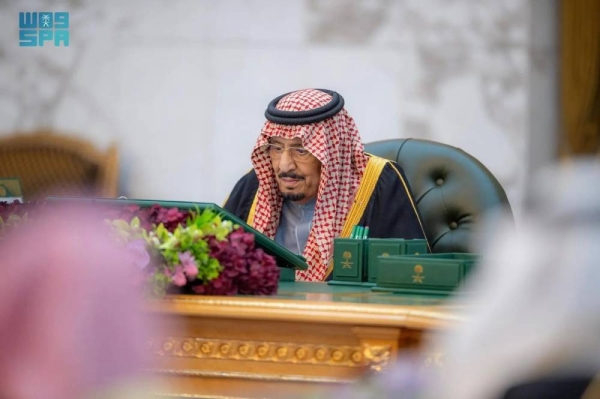The Saudi Council of Ministers recently called for the international community to hold the Israeli authorities accountable for the violations being committed against civilians and Islamic holy sites in Palestine. This statement was made during a session chaired by King Salman in Riyadh, where the Cabinet strongly condemned the ongoing Israeli attacks on Al-Aqsa Mosque in Jerusalem. The Council also expressed support for the Palestinian people and reiterated the need for a successful ceasefire in Gaza. Additionally, the Kingdom discussed its commitment to stability in Yemen through economic assistance aimed at strengthening Yemen’s foundations and empowering its private sector.
On the domestic front, the Cabinet reviewed the performance indicators of key economic sectors in the Kingdom and commended the growth of the non-profit sector, which supports healthcare, education, research, and other important areas in line with Saudi Vision 2030 goals. The Cabinet also approved the organizational arrangements of the Taif Development Authority and formed a National Committee for Government Correspondence to streamline government communication processes. Furthermore, the Council approved measures to grant the Diriyah Gate Development Authority jurisdiction over municipal violations within the Diriyah Gate project and endorsed a draft joint declaration of intent between the Saudi Ministry of Energy and Germany’s Federal Ministry for Economic Affairs and Climate Action.
The Cabinet also approved various memorandums of understanding for cooperation in areas such as civil defense, environmental protection, agriculture, trade, and intellectual property with countries like Mauritania, Kuwait, Honduras, Thailand, and Qatar. Additionally, agreements for cooperation in air transport services were approved with Congo and Kosovo, highlighting the Kingdom’s commitment to promoting international collaboration in various fields. Overall, the Saudi Council of Ministers emphasized the importance of fostering cooperation through bilateral relations and membership in multilateral organizations to address global challenges and advance prosperity in the region and beyond.
In conclusion, the Saudi Council of Ministers’ recent session highlighted the Kingdom’s stance on the situation in Palestine and its ongoing efforts to support stability in Yemen and promote economic growth in the region. The Cabinet’s approval of various agreements and memorandums of understanding for cooperation with several countries demonstrates the Kingdom’s commitment to international collaboration and partnership in various fields. Through its strong condemnation of the Israeli attacks on Al-Aqsa Mosque and its support for the Palestinian people, the Council reaffirmed Saudi Arabia’s commitment to upholding justice, peace, and stability in the Middle East.





















